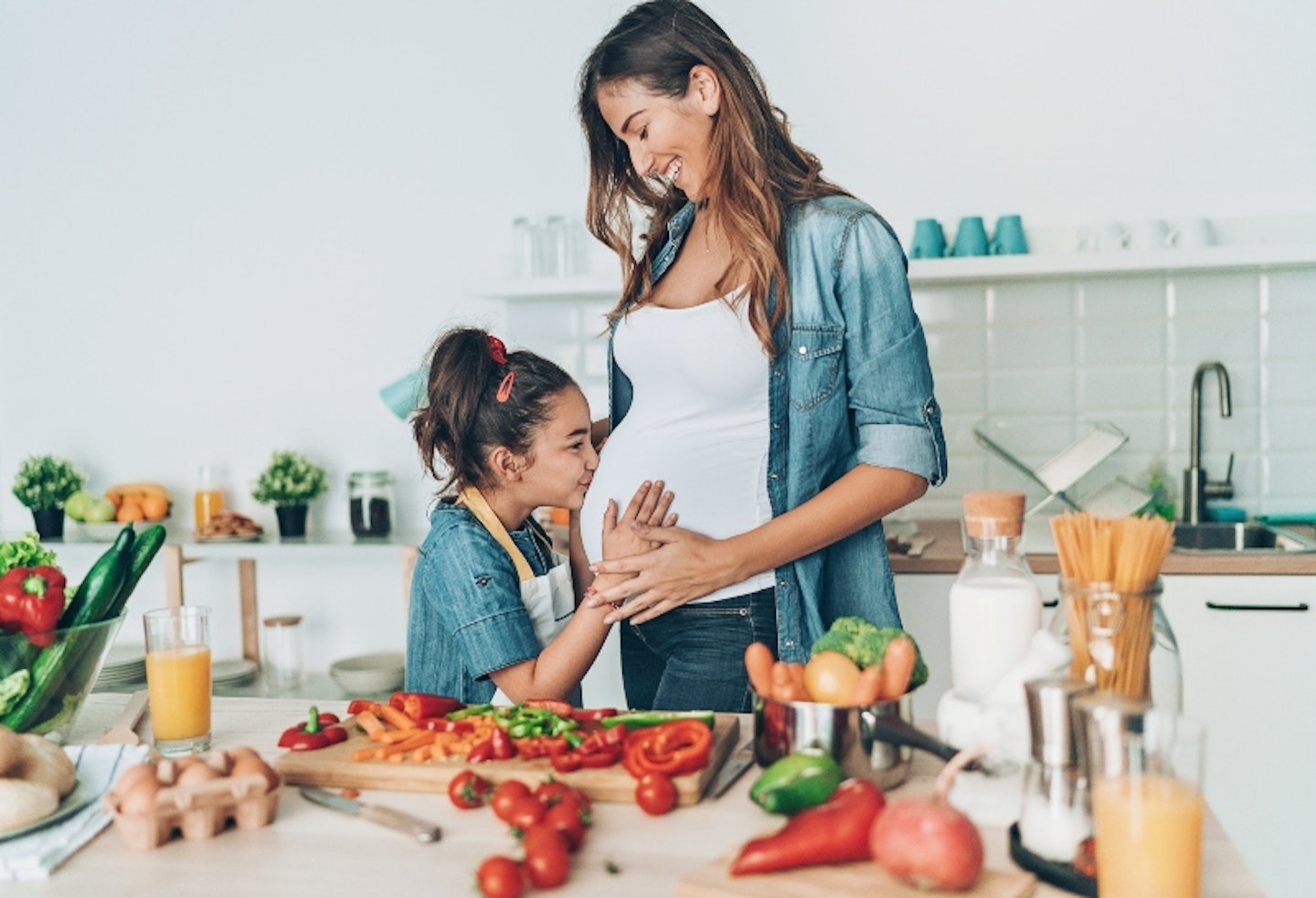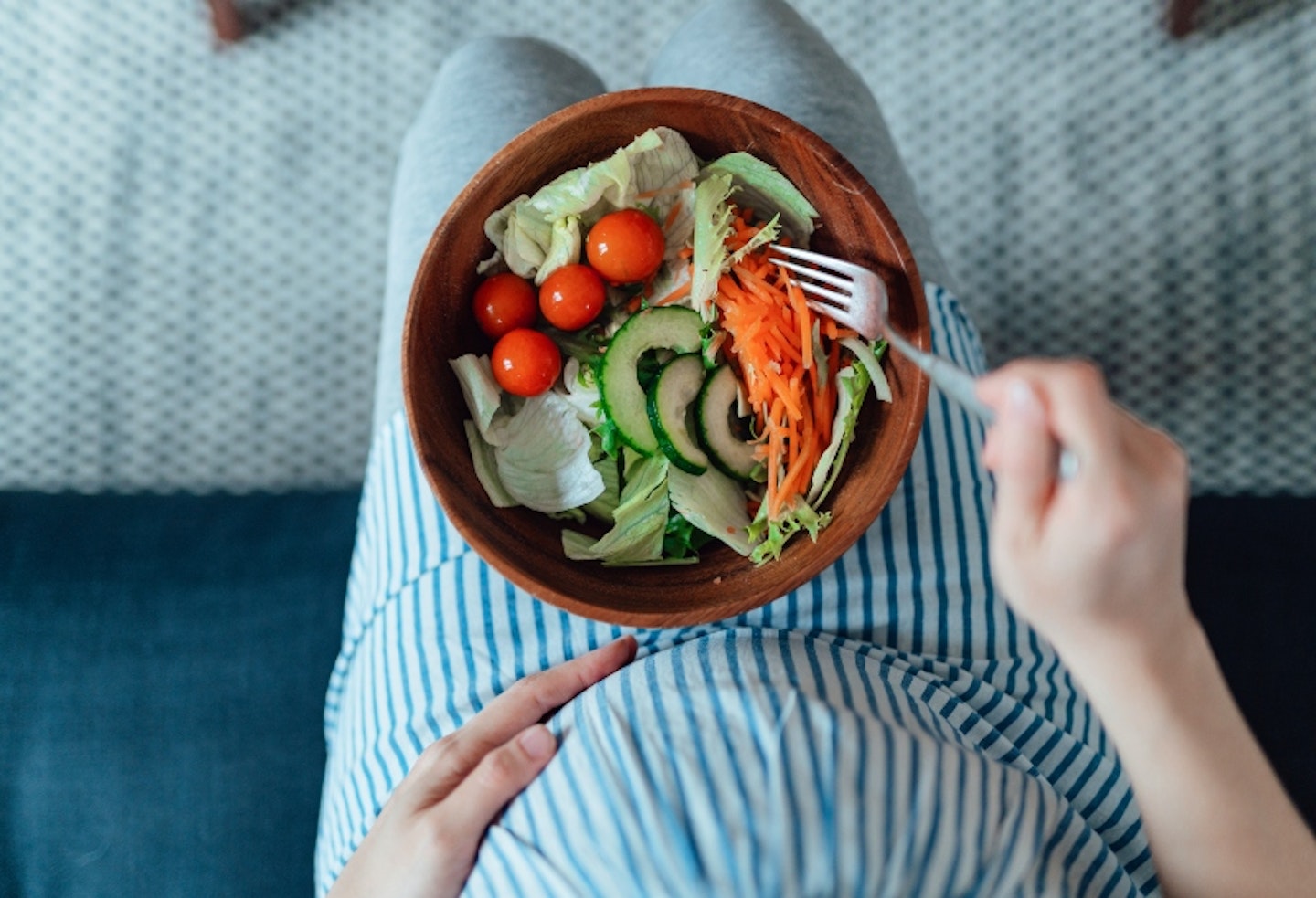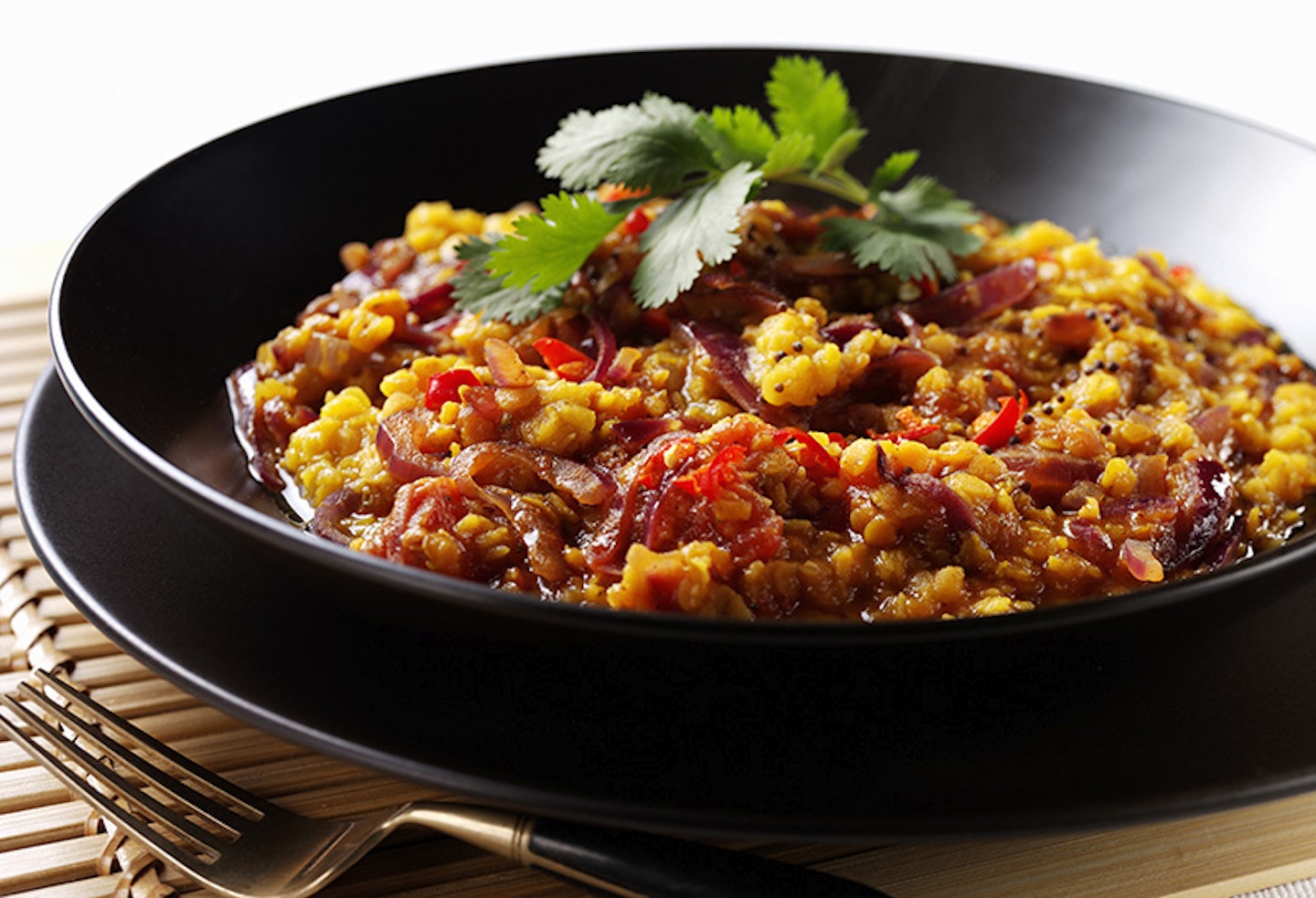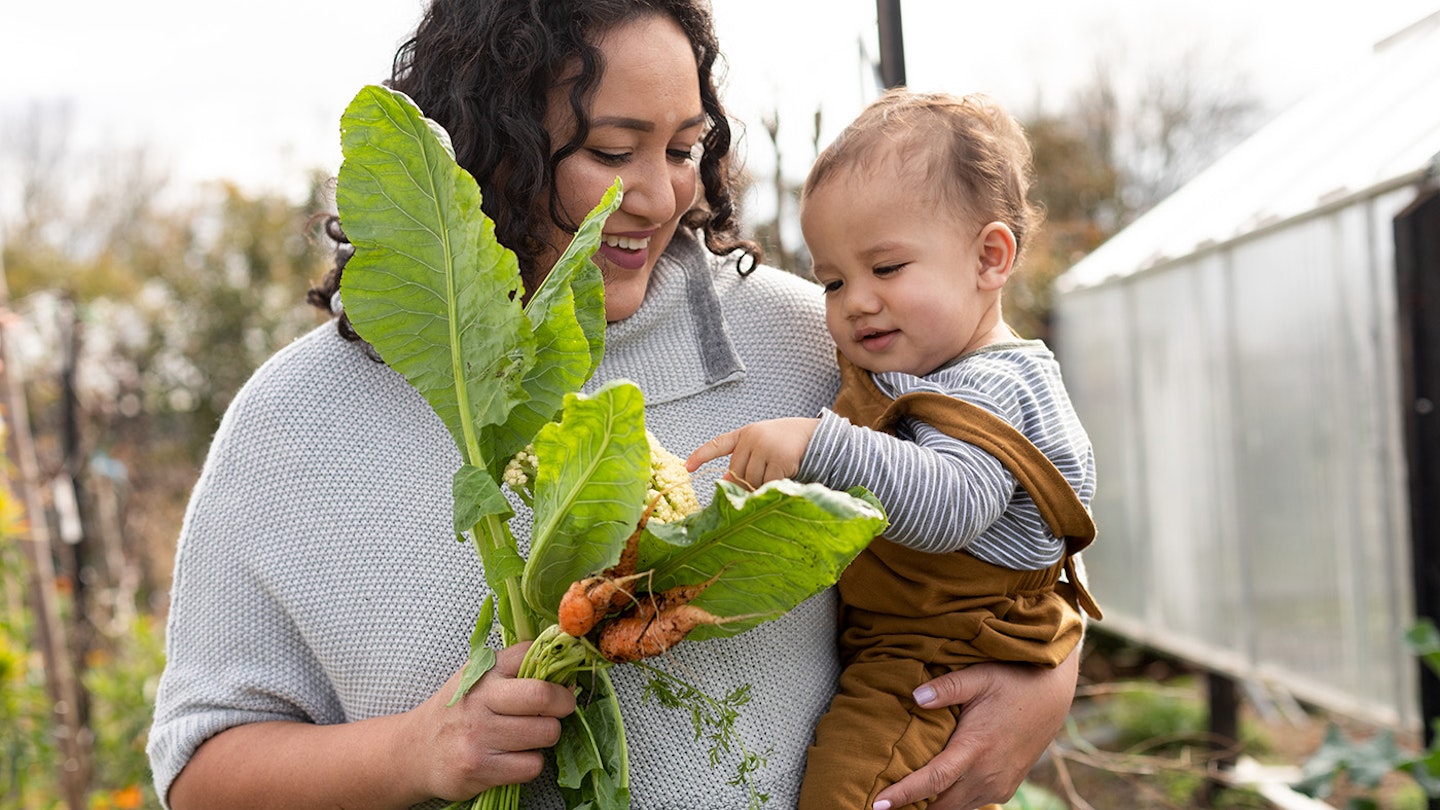Making sure you eat healthily throughout your pregnancy is vital for your own health and the health of your developing baby.
Eating a varied and balanced diet will make sure you both get all the required nutrients and for soon-to-be mum’s who are vegan, where many foods with a lot of these nutrients in are off limits, this particularly is vital.
By making sure that you get all the required nutrients, a vegan pregnancy is just as safe as a non-vegan one.
What is veganism?
Vegans consume only a plant-based diet (such as vegetables, nuts, grains and fruits), therefore they don’t eat any animal or dairy products and eggs.
Therefore for vegan mums who are expecting, it’s very important to make sure you’re not deficient in any of these nutrients that would otherwise be consumed through meats or dairy products during your pregnancy.
Is a vegan pregnancy safe for me and my baby?

Yes - as long as you make sure you and your baby are getting all the required nutrients throughout your pregnancy, such as enough iron, protein, B12 and calcium, a vegan pregnancy is just as safe as a non-vegan one.
“I've been vegan for five years now and I didn't even think twice about being vegan and pregnant,” says Roxy Pope, Co-Founder of So Vegan and mum to four-month-old Maya.
“Everything went really well, I had tests done checking my iron and things like that and it was always fine. Even after I gave birth the doctors were worried my iron would be low, but they checked it before I left the hospital and it was fine.”
How do I get all the nutrients I need?

If you’re vegan it’s important to make sure you’re consuming a variety of plant-based foods with enough protein, calcium, iron and vitamin B12 (where sources are limited for vegans).
“To get enough calcium I would eat a lot of leafy vegetables, pulses, tofu, soya, which are great for protein as well,” says Roxy. “For iron I’d eat lots of spinach and lentils, but when it came to B12 it was tricky as it technically comes from the roots of vegetables, but because our vegetables are cleaned with chlorinated water there's no B12 in them anymore, so I took supplements for this instead. I also took a pregnancy supplement called Viridian that had iodine, B12, folic acid and D3 (vitamin D) in it.”
Here’s a break down of what foods to eat to make sure you get enough all important protein, iron and calcium throughout your vegan pregnancy as recommended by the NHS.
Iron
Iron is important during your pregnancy as your body produces more blood to help deliver nutrients through the placenta to your baby.
-
Dark green vegetables
-
Pulses
-
Wholemeal bread
-
Fortified breakfast cereals (with added iron)
-
Dried fruits, such as apricots
Calcium
Calcium is important to consume throughout your pregnancy to help your baby develop strong healthy bones.
-
Dark green leafy vegetables
-
Pulses
-
Fortified unsweetened soya, rice and oat drinks
-
Brown and white bread
-
Calcium-set tofu
-
Sesame seeds and tahini
-
Dried fruit
Protien
Make sure you're getting plenty of protein during your pregnancy as it helps develop your baby’s muscles and tissues and encourages growth.
-
Tofu
-
Beans
-
Pulses
-
Nuts
-
Grains
Vitamin D
We usually get vitam D from the sun, however fortified fat spreads, breakfast cereals and unsweetened soya drinks (with added vitamin D) and taking vitamin D supplements will ensure vegans get enough of this in their diet.
The NHS recommends that those who are pregnant should consider taking a daily supplement containing 10 micrograms of vitamin D, particularly during the winter months (October until the end of March).
B12
B vitamins are important during pregnancy to prevent spinal development problems and to ensure your baby grows well. Vegan mums-to-be may struggle to get enough vitamin B12. It can be found in fortified breakfast cereals, fortified soya drinks and yeast extract.
You may want to take vitamin B12 supplement. If you're ever unsure, talk to your midwife or GP to provide advice on this.
Vegan pregnancy meal ideas
“Dals were really great to eat during pregnancy, because you can chuck in loads of lentils in there, spinach and it's pretty easy to make as well,” says Roxy.
“I also really enjoyed pasta quite a lot and lots of roasted vegetables with pulses, it was a great way of getting in loads of vitamins in.”
Super Simple Dhal Recipe By Roxy Pope, So Vegan

You will need:
-
2 cups dried red lentils
-
vegetable oil
-
1 onion
-
6 garlic cloves
-
thumb of ginger (30g / 1oz)
-
4 green chilies
-
4 large tomatoes
-
1 tbsp turmeric
-
1 tbsp cumin seeds
-
2 tsp garam masala
-
handful of fresh coriander (15g / 0.5oz)
-
salt + pepper
Method:
-
Drain and rinse your lentils until the water runs clear. Add them to a large saucepan along with 1.5 litres (6 cups) of water. Bring to the boil then reduce the heat and simmer uncovered for 10-15 minutes until cooked. Skim off the foam as it gathers at the top.
-
Meanwhile, add a little vegetable oil to a frying pan on a medium heat. While the oil heats up, peel and dice the onion then add it to the pan and fry for 5 minutes.
-
Next peel and dice the garlic and ginger and finely chop the chillies. Add the garlic, ginger and chillies to the pan along with the spices and fry for 2 minutes.
-
Dice the tomatoes, add them to the pan and fry for another 2 minutes.
-
Once the lentils are done, transfer the onion mixture to the saucepan with the lentils and simmer for 10 minutes.
-
To finish, pick the leaves off the coriander, roughly chop them and stir them into the dhal along with generous pinches of salt and pepper, then serve.
You can find more of Roxy's delicious vegan recipe's on So Vegan.
Always seek advice from your midwife or GP if you are unsure how you can get all the nutrients you need for you and your baby.
